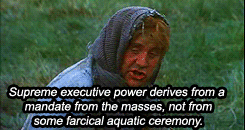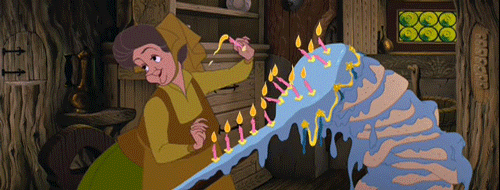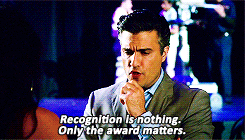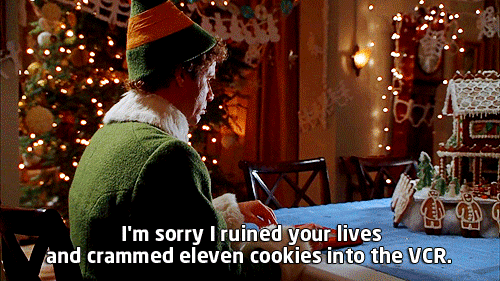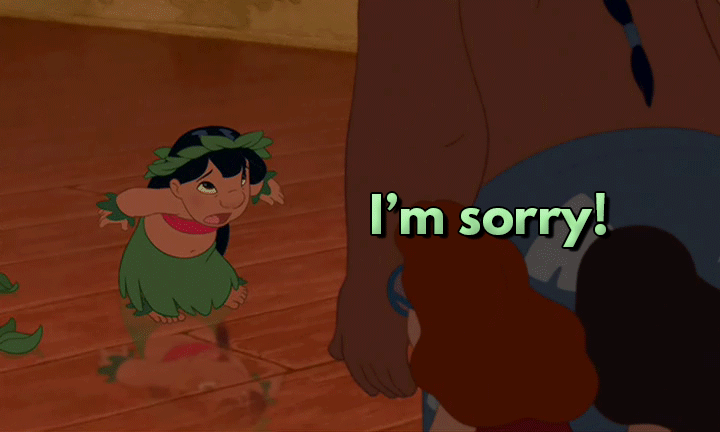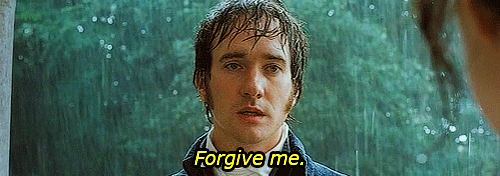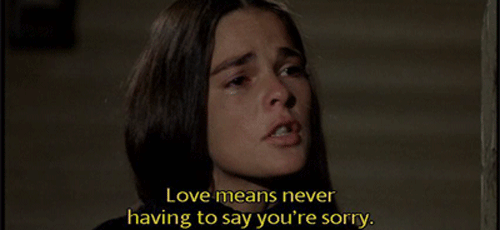Anniversaries & Apologies
Dames Nationals, as much as We Your Dames have always felt that this sentiment is true & correct:
We are willing to make an exception for Saga Vanecek, the perfectly named eight-year-old Swedish girl who discovered a Viking sword in a pond this summer. Every detail in the article is perfect, from the fact that Saga kept this a secret from everyone but her best friend for months to the fact that this find was especially meaningful to her because she’s a fan of the Minnesota Vikings. In a world where everything continues to be mostly garbage, we are clinging slightly harder than usual to escapist fantasies and superstitions, so between this and the fact that (FOR THE FIRST TIME IN MONTHS!) we both remembered to say “rabbit rabbit” first thing on Monday morning, we’re feeling a level of positive energy that ought to be completely impossible. BUT MAYBE THIS MEANS SOME TIDE SOMEWHERE IS TURNING?????? We can hope, and dream, and work.
Happy Anniversary To Us All!
Hey, guess what, Dames Nation! It’s the fourth anniversary of this here newsletter. This year, what we want more than anything -- the confirmation process for Brett Kavanagh to go down in flames -- we don’t think we’ll get. The thing we want second-most is for you to give some time and/or money to a candidate running in a flippable race at the local, state, or federal level. Considerably further down the list but for today’s purposes, what we want third-most, you know what you could do for a friend? Buy them a gift subscription to this here newsletter:
You’d be bringing delight & brilliance into a friend’s inbox, and supporting our women-centering endeavor in one fell swoop.
Before We Go Long ON Apologies, We Have to Issue One in Our Livetweet Reminder, BLERGH!
Sometimes, it’s important to know how to surrender to circumstances…
In reply to our last email, an eagle-eyed reader pointed out some really annoying news: Steven Soderbergh’s stone-cold classic Out of Sight left Netflix on Tuesday. It must have been a last-minute change on their part because it eluded both us and all the “Here’s What’s Leaving Netflix This Month” list-makers, but the annoying fact remains. We were faced with a choice: pick a different movie or throw ourselves on your mercy and ask you to watch a movie that is not streaming free anywhere. And we’re sorry for the inconvenience it might cause you but…. we’re sticking with Out of Sight. We just don’t know how to fight chemistry this strong:
HOWWWW can we say no to this?
So if you wanna join us on Sunday at 7:30 PM ET -- and we hope you do! -- you have a bunch of streaming rental options (all about $2.99 for Standard Definition and $3.99 for high) , as well as the perennially open option of borrowing a DVD from your local library. If you’ve seen the movie, we doubt we need to sell you on the value of renting it, and if you haven’t, please do trust us: the trunk scene alone is worth a STEAL at ANY price. So the revised details are as follows:
When: 7:30 PM ET on Sunday, October 7
Where: Twitter, using #outofsight (we’re keeping it real simple this time)
How: By renting it on streaming service of your choice, or an obliging DVD
And Again: We’re Sorry, But Before We Discuss Apologies, We Have GUEST DAME HONOR ROLL to Call!
In this case, we agree with Rogelio
Our very deeply beloved Literal Doctor Of Television, Kathryn VanArendonk, earned her first major print byline in this week’s issue of New York, with a profile of the great and good Jennie Snyder Urman. Urman is the creator and showrunner of Jane The Virgin, a show Dame Margaret loves with her whole heart and Dame Sophie has sworn to catch up on this, its final season, by gum. We’ve been enjoying and enthusiastically hollering about Kathryn’s work for Vulture for a couple of years now, so this milestone is one we take special pride in and absolutely zero credit for. Except for our monster bragging rights at being able to say we knew her when, which we will definitely be doing when she is the first in our group of friends to be interviewed on the Longform podcast, and inevitably, Fresh Air.
And Now, What You’ve All Been Waiting For, Maybe: An Apology!

SAME, ASHLEY. SAME.
Dear Darling Dames Nationals,
It’s this newsletter’s fourth anniversary, and what better way to kick off celebrating our existence than to say we’re sorry? We kid. Sort of, but also not really: we care a lot about people’s feelings, and correspondingly, we think a lot about manners and relationships and social glues and social lubricants. Social solvents, too, actually, now that we think of it. Oh, wow, we’ve just had a revelation thanks to this metaphor! We’re adding Social Chemists to our self-descriptions. EUREKA! Sorry, we digress! We’re here to talk about apologies, so let’s get to it. Strap in, friends!
So first of all, why apologies? We’ve been mulling this over for years, because apologies are so much a part of the fabric of our daily lives as white women highly conditioned to live in a Western, capitalist, patriarchal society. That is to say, we’ve spent our lives soaking in a system that has taught us both that we’re in a lower class of humans than our male counterparts (which means apologizing often, and for a host of things), and that we can use the obligations and tools of that social position to our advantage (which means apologizing both expertly and -- sometimes -- strategically). More recently, we’ve been forced to consider the place of apologies in our culture because it seems like the people who most need to make them are often the least equipped to do so. Your thoroughly mediocre-yet-wholly-entitled Brett Kavanaughs of the world have internalized the idea that apologizing for anything at all is weakness, without grasping the notion that they could use the temporary vulnerability of a sincere (or even just sincere-enough-seeming) apology to gain long-term moral authority and socio-cultural advantages. What they insist on taking by force could be gained more easily, more substantively, and more sustainably by gentle open-heartedness.
May all who are owed one someday receive an apology this thorough
As assiduous apologizers, we’re here to rep for the art of making really good ones, and to talk about some of the varied situations where they’re helpful. If you’ve messed up (which every human does, from time to time), a good apology is the emotional equivalent of showing your work in a math problem. You’re showing that you understand what you did wrong and your interest in making it right, so you & the apologize-ee can move forward.
One of the worst myths about apologies that we’d like to dispel is that the presence of one marks the end of a conversation. This myth can be damaging in two ways. With small missteps, this myth can cause people to withhold apologies in exactly the kind of complicated discussions that most benefit from the social lubrication a good apology can provide. Thinking that apologizing for misspeaking or hurting someone’s feelings closes the discussion leads people to double down on their errors from fear that admitting fault will risk invalidating their point of view altogether. Conversely, when people make bigger errors and assume that saying “I’m sorry” is the end of the conversation, instead of the beginning, it leads to Forgiveness Entitlement. With small missteps, if you’re interacting with people of good faith, saying “That one thing was an error, sorry about that” should increase the integrity of your position, not damage it. And when you’re confronting a bigger wrong, you must go in knowing that the necessary corollary to admitting serious fault is inviting the parties you’ve wronged into a discussion about how you can mitigate the hurt you’ve caused. An apology can relieve tension, allowing a conversation to continue or creating a space where one can begin. But one alone is not a solution -- the value comes from the discussions that follow.
This recognition that an apology need not be an admission of defeat or subservience is what leads to our somewhat complicated stance on reflexive apologies. We often see reflexive apologies -- where the apologizer hasn’t done anything bad enough to merit an “I’m sorry”, but offers it anyway -- demonized because it’s a strategy developed in response to a power imbalance. The popular advice to women these days is that we need to STOP APOLOGIZING SO MUCH -- even our shampoo thinks so! On one hand, we get this. Some of the things we’ve caught ourselves reflexively apologizing for are truly ridiculous. For example, Dame Margaret has more than once sleepily apologized to her own reflection after being startled by it but before realizing it was not another person. And when disempowered people are the only ones apologizing, it reinforces some garbage ideas about who’s entitled to take up space in the world and have their feelings considered. But we balk at the claim that the problem lies with the preponderance of apologies on one side of that power imbalance and not the total absence on the other. Being open to apologizing, even reflexively, even for ridiculous things, can -- like uptalk* and other traditionally “feminine”-coded speech patterns -- be really effective at building consensus and defusing conflict. So maybe what we should be working towards with apologies is not abolition, but conscious redistribution. Let’s all work on being more parsimonious with our apologies to the powerful and more lavish with our them to our peers and -- perhaps more importantly -- to people whose pain society is intent on minimizing.
This brings us to one further note we’d like emphasize. As white ladies working to navigate the world fairly despite our hefty servings of privilege, we want to share some particular advice to our readers who are likewise…blessed and burdened. When someone with less cultural power than you voices criticism of you, there are an infinite number of ways you can dismiss it and be affirmed by the culture at large.Try to understand how much trust, is implied in that person's decision to speak at all.
The person criticizing you, subject to systems of oppression you don’t experience, knows how easily they can be caricatured and dismissed, how eagerly people will flock to your defense if you ask them to. If they're speaking up, regardless of the tone they use in doing so, it's because they sincerely want you to do better, and that’s a gift. There are going to be times when you're broadsided by a hurt you did not create and that can be hard. But usually it's harder on the person hurting than it is on you. So, take a minute to acknowledge the precarity people disempowered by society live with all the time and give them the benefit of the doubt instead of demanding it for yourself.
BTangentially: can we say how much we have grown to love uptalk? At a time when so much of our discourse is written, and thus traditionally stripped of all the subtle nuances that convey tone, degree of familiarity, and mood, uptalk, extra letters (which can mimic emphasis and/or a vocal trailing off), and the dropping of terminal punctuation in written speech are all increasingly valuable. And, for our Dames Nationals Aborad: we’re curious about the effect of uptalk, aka a high-rising terminal, on conversation in English dialects where it’s the norm, as in Australia and New Zealand. Is it easier to reach consensus in conversations where everyone uses uptalk as a matter of course? If you know, do let us know! And if you know about high-rising terminal accents in languages other than English, we’d love to hear about that, too.
And Now, On With The Schema d’Appologia!
(with apologies to Italian, bc we sure did just make that phrase up out of thin air & mild giddiness at putting this issue to bed)
This is specific and heartfelt. Be like Buddy the Elf!
This is vague, demanding, and so evidently panicked that it immediately makes the apologizer’s feelings the focus, leaving no space for the apology recipients. Don’t be like Lilo.
I’m sorry for doing/not doing XYZ. This is a workhorse, a classic. Your Little Black Dress of apologies, this one immediately acknowledges the speaker’s responsibility or failure of same. The apologizer can elaborate if necessary, and can easily build in room for the apologize-ee to respond, or they can pivot pretty quickly to what they’ll do next to make good & re-establish equilibrium in their relationship.
See also: I’m sorry that Thing I Did or Said ABC made you feel XYZ. Please note the distinction between this and “I’m sorry you feel that way”, which is a non-apology and thus really only acceptable when issued to people on trial for crimes against humanity in The Hague. To those people you should feel 100% justified in saying “Yeah, sorry you feel like you shouldn’t be here, my dude, but you did order the slaughter of thousands, so, tough Twinkies!”
With both these types of apology, the more specific detail you include, the better. The best way of showing sincere remorse is not making statements about how you feel (I’m terrible, I feel so guilty, I’ll never forgive myself) but demonstrating that you have thought really carefully about the other person’s experience of this interaction. By being specific about your missteps, and dedicating some thought to either imagining how the apology recipient feels or reflecting clearly words they’ve already shared with you about their hurt, you can demonstrate that you’ve done some of the work you should, that you want to center the discussion on their feelings, not yours, and that you’re coming into the interaction with a true willingness to learn.
I’m sorry for your loss. This is a very good thing to have in your back pocket, though strictly speaking, it’s not so much an apology as it is more an expression of sympathy and/or empathy. In any case, it’s extremely useful to be able to bring this one out as needed, because people you love experience loss pretty regularly. Those losses can be out of the blue, so learning about them can be awkward for you, making a script an extremely handy thing to rely on. This is a case where your likely feeling of inadequacy is a feature, not a bug: knowing that you can’t fix it, caring most that the other person has what little comfort you can provide, is powerful. Unlike with regular apologies, here it can be helpful to foreground your own feelings of loss or anger a bit more-- so much of condolence culture can obliquely or even explicitly encourage people to minimize their suffering for others’ benefit. By acknowledging your unruly feelings, you can help show the person suffering that there’s space for them to be unruly, too.
See also: Undesirable Situation XYZ is terrible, and I’m sorry that it’s happening to you. It can be surprisingly difficult to stick the landing on this kind of apology conversationally, particularly if you’re not close with the person you’re saying it to. It’s easy to risk coming off as pitying, or to seem like you’re taking on undue responsibility for another person’s harmful actions. We think this works best in a conversation between close friends.
Some Resources on Apologies, Good & Bad
The GIF equivalent of “This Is Just To Say”-- what it might lack in skill, it makes up for in hotness.
No conversation on apologies could be complete without referring to SorryWatch, Marjorie Ingall & Susan McCarthy’s long-running website where they track & critique public apologies. You can read a great interview with Marjorie & Susan at The Cut.
The second half of this recent episode of the podcast Reply All, which addresses the recent spate of Beauty YouTubers fucking up royally and apologizing badly and includes a hilarious, insightful breakdown of a standard YouTube apology video.
Even if you didn’t study William Carlos Williams’ "This is just to say" in a high school English class, you’re probably very familiar with it thanks to Twitter, where it’s proven to be exceptionally adaptable as the basis of a very resilient meme. What follows is a transcription of our conversation about it, lightly edited for publication in a family newsletter:
Dame Margaret: That poem is AMAZING MEME FODDER, but a terrible apology.
Dame Sophie: Counterpoint: I think it’s extremely effective, as I would 100% make out with (and in the process, find my way to forgiving) someone who left me such a beautifully written apology note even though it’s really a non-apology.
Dame Margaret: A defensible opinion! Also his attention to the plums is very sensual.
Dame Sophie: This is what I’m saying. I mean, he doesn’t apologize but he does say “forgive me”, which is very humbling & supplicating in that context? And then follows it up with “they were so sweet and so cold”, and honestly that is...hot.
Dame Margaret: I think you should demand more than sensuous beauty from your apologies, in general, but to demand more from a poem would be churlish.
Dame Sophie: I feel like a perfectly written, super-brief poem is a good apology for the theft of a few stone fruit. If the scenario were the destruction of a beloved cardigan, I would expect, at minimum, a sestina.
And finally, we’re going to round out this list with a plug for our own recent guest appearance on our buddies Craig & Andrew’s podcast, Overdue, in which we tore to shreds Erich Segal’s iconic, woefully inaccurate, and based on...what, exactly? adage that love means never having to say you’re sorry. Ugh. What kind of Love Story is that? Not one we’re interested in rereading or rewatching, thanks!
Again, NOPE. Accept almost literally any substitute for this garbage nonsense.
Two Bossy Dames is brought to you by:
Schooling the world in bra-conomics
This wise, yet cheeky af pug swathed in classic Burberry
Tom Hardy answering children’s toughest questions with his usual oddball élan!
We appreciate you, readers of Dames Nation!
Every time you tell a friend to subscribe, some woman, somewhere, discovers and generously explains the true meaning of Dolly Parton’s immortal classic, “Jolene”.
Help us build Dames Nation by upgrading to a paid subscription on Substack
Share your saucy opinions with us on Twitter whether jointly as your @twobossydames, or in single size servings as @MrsFridayNext & @sophiebiblio!
And! You can catch Bossy Extras on Tumblr.
